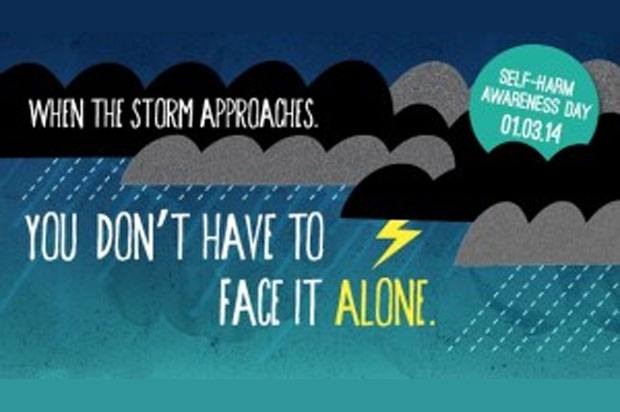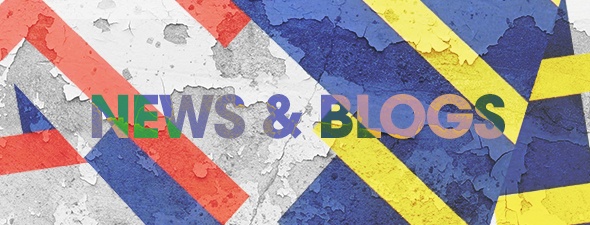Self-harm: Youth charities reveal bullying and loneliness as a major trigger
A recent poll, conducted for Self-harm Awareness Day, reveals that one in four young people who self-harm started due to bullying, with 61 per cent saying they do it because they feel alone.
ChildLine, Selfharm.co.uk, YouthNet and YoungMinds have collaborated once again in support of Self-harm Awareness Day (1st March). To help understand the key reasons why young people begin to self-harm, the charities conducted a survey* and received an overwhelming response from almost 4,000 young people aged 25 and under.
Feeling ‘alone’ and being ‘bullied’ were highlighted as the key triggers that lead young people to self-harm for the first time. One in four of respondents named ‘bullying’ as the biggest reason for hurting themselves and 61 per cent of respondents said that the event leading them to self-harm had made them feel ‘alone’. More than 38 per cent of respondents admitted that, other than online, they had never spoken to anyone about their self-harming.
Each year, the charities see increased demand for services as more and more young people are trying to reach out for support. ChildLine alone have seen a staggering 41 per cent increase in counselling sessions where self-harm was mentioned.
When asked about their coping techniques, respondents rated ‘listening to music’ (45 per cent) as the best way to stop themselves from harming. This was followed by ‘talking to friends and family’ (15 per cent), which coupled with the admission that 38 per cent have never spoken to anyone about their self-harm, highlights the increasing importance of breaking taboos around this issue and encouraging people to talk more openly.
Rachel Welch from Selfharm.co.uk, speaking on behalf of the charities said: “Really tackling the issue of self-harm among young people means not only recognising the situations and feelings that lead them to take this path but also ensuring that those in a position to help them recognise the early signs of self-harm and how best to support them.”
“Young people themselves can also be a source of support for each other. As part of the survey, we asked young people to tell us their distraction or coping techniques and share their own messages to raise awareness of self-harm and break some of the common myths. We received a fantastic response and will be sharing these messages via our websites and social media for a week after Self-harm Awareness Day.”
Sharing her own message in support of others affected by self-harm, Becky, an 18 year old who volunteers for selfharm.co.uk said: “By bringing self-harm into the light and speaking about it openly we send an important message: ‘You are not alone, help is always out there and there is always hope’.”
Rachel continued: “Many young people told us that they wanted people to know their self-harm wasn’t about attention seeking. It’s so sad that young people are facing this stigma and being labelled rather than getting the support they need.”
The charities want everyone to be able to recognise the initial signs of self-harm and support young people to know that they are not alone. You can find out more about the campaign on each of the charities’ websites or by follow their campaign on Twitter via #selfharmawarenessday.
*Charity Survey – From December 2013 to February 2014, ChildLine, Selfharm.co.uk, YouthNet and YoungMinds hosted a self-selecting online survey to ask young people about their experiences of self-harm.
When young people gave us reasons for hurting themselves for the first time, the most frequent were:
- Bullying (25%)
- Family relationships (17%)
- Pressure to do well at school (14%)
- Emotional abuse (11%)
- Friendships (11%)
When asked about the feelings that first led to them hurting themselves, young people cited feeling:
- Alone (61%)
- Numb/empty (46%)
- Sad (41%)
- Angry (36%)
- Out of control (34%)
YouthNet media contact: Emma Motherwell, [email protected] or tel: 020 7250 5779, 07766 660 755
ChildLine offers children and young people aged 19 and under free, confidential advice and support 24 hours a day – no problem is too big or small. Our trained volunteer counsellors can be contacted through our helpline 0800 1111 or on www.childline.org.uk for online chat or email.
By
Published on 27-Feb-2014
No featured article














